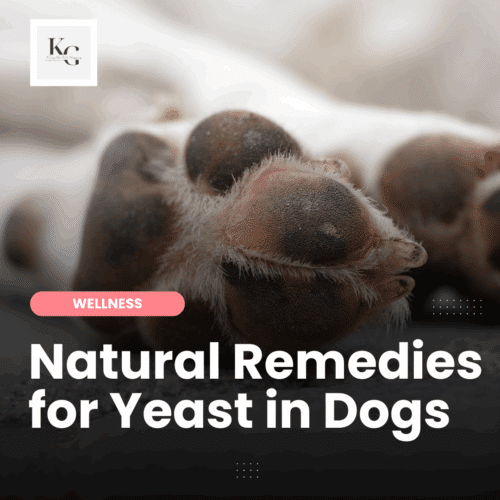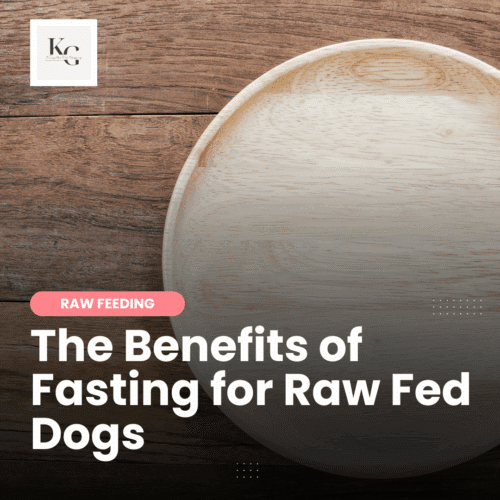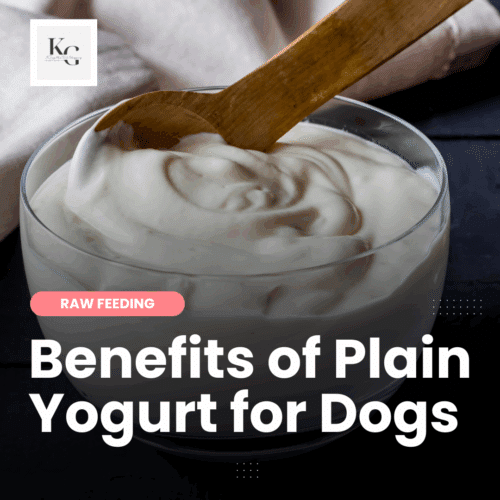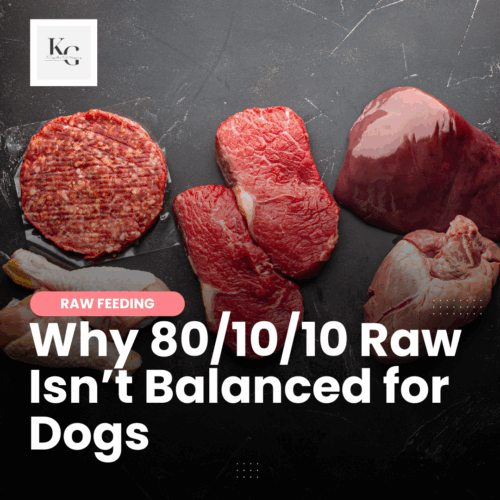Keep the Tail Wagging is supported by pet parents. I occasionally earn a commission (at no additional cost to you) when you click through an affiliate link to one of my favorite products. Thank you for your support. Read More
DepositPhoto/olgamanukyan
Now that I'm on the fermentation bandwagon, I began to wonder what else I could ferment for my dogs. And the answer was easy! Seeds.
I know that my dogs' raw diet isn't perfect and I also know that taking control of my dogs' diet is a marathon, not a sprint. I'll always be learning something new and while I've always known that various seeds provide nutrients for my dogs, I recently came to the conclusion that I needed to begin adding the following seeds to my dogs' diet. And as with vegetables, I believe that feeding them fermented seeds offer more benefits than if I simply grind them for my dogs.
Seeds that I Share with My Dogs
- Pumpkin Seeds
- Sunflower Seeds
- Chia Seeds
Benefits of Pumpkin Seeds for Dogs
Surprisingly, pumpkin seeds contain protein and amino acids, but that's not why it's a favorite snack of mine. As an aspiring vegetarian, I love pumpkin seeds because they provide a lot of nutrients that I may be missing.
- copper
- calcium
- fiber
- iron
- magnesium
- phosphorus
- potassium
- niacin
- folic acid
- Vitamins A, B, E, and K
- Omega 3 and 6 fatty acids
Pumpkin seeds also act as a natural dewormer, eliminating parasites from a dog's system. And they also serve as a natural anti-inflammatory.
Benefits of Sunflower Seeds for Dogs
I used to eat Sunflower seeds so much that I developed an allergy to them. Recently, I learned that because they're high in fat, they can go rancid and should be stored in the fridge. What???? I wonder if this is why I developed an allergy – I never knew that I had to refrigerate them. Anyway, sunflowers made this list because they're high in the following nutrients:
- copper
- folate
- magnesium
- manganese
- phosphorus
- selenium
- Vitamins B1, B3, and B6
If you have a dog with blood work that came by showing high cholesterol numbers, sunflower seeds may help to bring that number down. Sunflower seeds also boost the immune system, supports heart health, and acts as an anti-inflammatory.
Benefits of Chia Seeds for Dogs
I started adding chia seeds to our diet (me and the dogs) because they're rich in Omega 3 fatty acids. But that's not all! Chia seeds:
- are rich in antioxidants
- offer a boost to the immune system
- alleviate stress
And chia seeds offer the following nutrients:
- calcium
- copper
- zinc
- iron
- magnesium
- phosphorus
- potassium
- B Vitamins
Fermenting Seeds for Dogs (and Yourself)
Have you ever snacked on pumpkin seeds for a few days? I have and what happened wasn't pretty. TMI Alert – I didn't spend a week on the toilet or anything; instead, I had a week of horrible cramps and it turns out that if you're going to snack on pumpkin seeds, only eat a small amount at a time. If pumpkin seeds make me feel crappy, what will they do to my dogs?
Fermenting seeds makes them easier to digest so my dogs won't experience the same discomfort. Fermenting replicates the pre-digested food that our dogs would find with their prey. And not only do our dogs get the benefits of the additional nutrients, they also get a natural source of probiotics and a boost to their gut health.
I found this recipe on the Canine Ascension Facebook page:
Canine Ascension Recipe for Fermented Seeds
According to the Canine Ascension recipe, it's advised to make small batches at a time and store them in the fridge, because seeds (the recipe is for pumpkin seeds) can become rancid. The small batches make it easier to consume within a week.
- 1 cup of raw seeds
- 1 cup of filtered water (or just enough to cover the seeds)
- 5 tbsp of whey from kefir that's been allowed to separate*
- soak all ingredients together in a jar for 24 hours
- strain and blend until smooth
- store in the fridge
*For my first batch, I made 1-1/2 cups of a seed mixture (pumpkin, sunflower, chia) and instead of the whey, I used 3 turns of my sea salt mill and allowed the seeds to ferment for 4 days.
Fermented Feeds – Dosage for Dogs
1 tsp per every 10 pounds of body weight to start; for large dogs and giant breeds, feed up to 2-3 tablespoons.
My plan is to make a paste with the seeds I've fermented and add a small amount to my dogs' meals a few days a week (two to three days to start).
Also, learn how to ferment vegetables for dogs.







Yes. However, I try to use it within 1 month or 2.
Can it be frozen after the purée ?
Hi Lisa…yes, you can. I’ve heard of others who do this with their ferments. Do you have a recipe for Greek yogurt that you can recommend? Thanks!
Just wondering if I can use the whey from yogurt. I make my own yogurt and strain it to make Greek yogurt, do you think this would work?
Hi Jill, I don’t drain the chia seeds. I add it to my dogs’ raw meals as the gel (or mix it into their vegetables that way).
How do you strain chia seeds after fermenting them since they gel?
What a great exchange of info from some dedicated pet parents. Hot-diggity-dog!
Imma ferment some seeds!
Thanks, y’all! xo
Here is the pumpkin seed ferment using whey https://www.youtube.com/watch?v=T9LNLt7usgE
I never feed seeds near a meal because of anti-nutrients such as lectin which will block the absorption of already scarce minerals. I’ve been soaking my own nuts/seeds for over 30 years and it is a traditional practice in indigenous cultures that are aware of this and other issues. Salt will work fine – especially for healthy dogs but whey removes the most antinutrients (I think the study that showed this is in this video – if not it’s in the next one). I typically use more whey (50/50) and let it sit a bit longer. But I also work with sick dogs with dysbiosis so I am particular about food combinations with underlying issues. A healthy dog should be fine with a 24 hr water soak for most dog-safe seeds and nuts. 🙂
Thanks for the tip, Nathalie. Can you share your YouTube link? I want to make sure I grab the right one. I’d love to embed it into this blog post for people who need the information. You can also email it to me at kimberly@keepthetailwagging.com.
Roann, you can use Answers Kefir or goat milk to make the whey. Simply set out to separate on the counter in a glass jar (typically 24 hrs around 70F) and strain curd with a cheesecloth. I made a video on this but just go to YouTube and do a search on how to make whey. When I can’t get raw milk from a farm, I use Answers. Whey stores up to 6 months in the fridge. I use the cheese (curd) for the pups too and they love it. 🙂
I’d be curious if seeds had enough calcium to replace bone or eggshells.
I wonder if I can use fermented seasame seeds as a calcium source, as I’m not yet ready to feed raw bones. Apparently a lot of natural calcium supplements contain high levels of toxic metals (egg shells are considered safe) and some studies have shown that calcium supplements may increase the chances of heart and kidney problems in humans.
Kimberly,
I can’t remember. Are they suppose to have it every day for a week, once a month?
Thank you,
Misty
Because it was such a small amount, I used three turns of my salt mill. It was a very small amount.
Kimberly, how much salt do you plan to use?
Wow, awesome, I never heard of fermenting seeds.
I’m not 100% sure, I read that people are doing it with homemade kefir, but I don’t know if Answer’s kefir separates enough to allow the whey so I plan to use salt.
Can you use kefir or goat’s milk from Answers as a substitute for the whey?